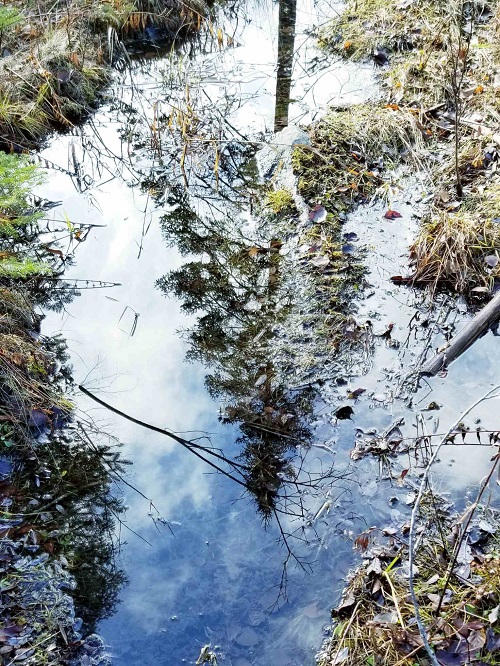We’re all wondering how many of us will survive the coronavirus pandemic, but in the longer term, many of us are wondering what remnants of our globalized civilization are likely to survive the collapse that is now under way.
In her 2015 book The Mushroom at the End of the World, anthropologist Anna Tsing addresses the question in her subtitle: on the possibility of life in capitalist ruins. Those “ruins,” by the way, should be pictured not as crumbling buildings like the “ruins” of ancient civilizations, but as the ecosystems that have been systematically ruined by extractive capitalism.
Jeremy Lent also raised the question last fall on his Patterns of Meaning blog, ‘As Society Unravels, the Future Is Up for Grabs’. Here he applies the concept of “the adaptive cycle” to human society.
Scientists have studied the life cycles of all kinds of complex systems—ranging in size from single cells to vast ecosystems, and back in time all the way to earlier mass extinctions—and have derived a general theory of change called the Adaptive Cycle model. This model works equally well for human systems such as industries, markets, and societies. As a rule, complex systems pass through a life cycle consisting of four phases: a rapid growth phase when those employing innovative strategies can exploit new opportunities; a more stable conservation phase, dominated by long-established relationships that gradually become increasingly brittle and resistant to change; a release phase, which might be a collapse, characterized by chaos and uncertainty; and finally, a reorganization phase during which small, seemingly insignificant forces can drastically change the future of the new cycle.
As many other commentators are saying, the shaping of our “recovery” from the pandemic is an opportunity to change the future of the new cycle of civilization. It is clear that many of the people and subsystems of the now-collapsing global system are not going to survive, but chances are we can have some influence on how it all turns out. For more on this cyclical pattern, including diagrams of it and my own reflections on it, visit rePatch ·11 of Turning Signs.
